
05 Dec Report of the 26th annual IAPTC Conference held at BIPSOT, Bangladesh from 31st October to 4th November 2022
Conference Theme
The theme for the conference was “Peace Operations in the digital Era; Opportunities and challenges for the Global Training Community”
Keynote Address
The Keynote Speech was delivered by Jean-Pierre Lacroix, USG DPO (Recorded Speech via zoom). Over 42 special dignitaries and speakers made presentations on various topics to compliment the theme.
Sessions Covered
The Conference covered the following sessions to implement the theme :
- Total: 243, Overseas – 134, Local – 86, others 23
- Overseas – 134 (Male-119, Female-15), (Military-88, Police-38, Civilian 8)
Participants/Delegates
In all, 243 delegates participated in the conference with the breakdowns as follows:
- Session – 1 : Digital Transformation : The UN HQ Perspective
- Session – 2 : Voices from the Field : Digital Transformation
- Session – 3 : Digital Transformation : Perspective from the Training Communities
- Session – 4 : Partnership and Cooperation in Delivering Training in Digital Era
- Session – 5 : Technology and Innovations in UN Peace Operations Training
- Session – 6 : Situational Awareness & Peacekeeping Intelligence
- Session – 7 : Performance and Accountability
- Session – 8 : Action for Peacekeeping (A4P) & Action for Peacekeeping Plus (A4P+)
- Session – 9 : Thematic Discussions
- Session – 10 : Women, Peace and Security
- Session – 11 : Regional Updates
APSTA’s Participation
The Executive Secretary of APSTA, Dr. Cecile Oyono delivered a presentation on the theme “Digital Innovation and Peace Support Operations in Africa: Opportunities and Limitations”. She touched on the current challenges confronting PSOs and the TCEs in Africa in the digital Era. She highlighted the opportunities available.
She emphasized on the APSTA approach so far and the call on the global community for sharing of ideas, logistics and knowledge together towards a peaceful Africa. APSTA also presented a report on Regional updates, Secretariat activities and current projects underway. The team from APSTA took part in all the sessions and other events organized at the conference.
Complimentary Events
The host, BIPSOT beautifully complimented the Conference with various events and tours to explore the beauty of Bangladesh.
a. Police Day: Organized for all Police officials to mark the UN Police day. b. BIPSOT Tour: Touring the school to insect their facilities and contributions towards the UN and the global peace agenda. c. IDEAS Bazaar: All participating groups were given the opportunity to display and showcase their project, product and services to the delegates. d. Showcasing Bangladesh Show (Display of culture, history and heritage): A night of rich cultural and musical show of the people of Bangladesh. e. IAPTC Plus: Sharing ideas among stakeholders to make the next conference better to achieve all its targets from presentations, theme, focus and agenda. f. Museum Tour: A tour of their national military museum
Key Takeaways At Main Sessions
As part of efforts to consolidate the ideas and recommendations made during all the 11 sessions, the following summaries were highlighted as take aways for all stakeholders to further interrogate, deliberate and recommend for the training communities, and to take strategic steps to implement some of the best practices that were discovered
1. “Digital Transformation Strategy of UN Peace Operations” need to be fully understand by all stakeholder 2. The project on ‘Leveraging Technology for Uniformed Peacekeepers’ has recommendations for uniformed peacekeepers in coordination with DOS & UN Global Service Center, OMA is currently working on some sound project that can be copied by others: • Deployment of Counter-IED systems through ECM • “Smart camp” Project at UNISFA 3. Need to collectively build digitally literate culture in National militaries 4. Unite Aware (UA)’ – Technical platform integration for UA maps, Sensors, Assets Tracking, Patrol Plan, UA stage can be copied and applied by others 5. OPSP has Identified systemic gaps – Mindset, PoC, Initiative by Commanders, Conduct and Discipline, Peacekeeping Intelligence, Breaking Routine and Predictability, Training 6. “Military Performance Management System” by OMA – TCCs to be implemented 7. Command & Risk Management for SEA – Responsibilities of Commanders is key 8. Social media channels such as Twitter, Facebook and LinkedIn are vital means for engaging local populations, promoting the positive impact of the United Nations Police in the communities must be positively projected. 9. The national authorities aim to support are often under-resourced, including with respect to technology gaps, reliable electrical power, and telecommunications, as well as budgets to sustain and maintain IT equipment and back up data 10. Any high-tech initiatives deployed by a mission’s police component must not discourage the development of potentially more viable low-tech national solutions 11. Partnership for e-learning platforms on Peace Support Operations citing POTI and UNITAR as key examples.
Key Takeaways At Breakout Sessions
As part of efforts to consolidate the ideas and recommendations made during all the 11 sessions, the following summaries were highlighted as take aways for all stakeholders to further interrogate, deliberate and recommend for the training communities, and to take strategic steps to implement some of the best practices that were identified :
1. Host government restrictions will limit security related technology. 2. Technical requirements could be met by joint or co-deployments. 3. Training requirements could be met by engaging experts, providing basic training (for civilians after contract acceptance and before deployment). 4. Need to have durable products which are common to all UN missions and which allow a common approach to training. 5. Need to understand that technology is not the answer to all peacekeeping issues. 6. TCCs/PCCs need to comprehend fully regarding the “Digital Transformation Strategy” 7. Majority of the TCCs/PCCs don’t have access to the ‘Hi-tech technologies’ being used in the UN Missions 8. These technologies may be made available to the National Peacekeeping training centers. 9. These equipment need to be used extensively during the Pre-deployment Training at home. 10. More cooperations are needed between the TCCs/PCCs and the various donors/supporting countries. 11. There are also difficulties of deploying high-tech gadgets in the mission due to restrictions by the host state.
Next Host
Kenya was slated to host the next 27th IAPTC Conference in Nairobi/Karibu in 2023 under the auspices of IPSTC. They accepted the mandate and delegates a gist of good things to expert in Kenya next year.
New Appointments
1. Presidency : BIPSOT-Bangladesh 2. Next Host : IPSTC- Kenya (APSTA member) 3. Military Chair : Col. Sidi Ali FOFANA, The studies Director, EMPABB (APSTA member) 4. Police Chair : Lt. Col. Pierpaolo Sinconi, Chief of CoESPU Research Office-Italian Carabinieri 5. Civilian Chair : Dr. Lotte Vermeij, Senior Expert on Sexual Violence in Conflict and UN Peace Operations, NORCAP/NORDEM 6. Pedagogical Chair : Darleen Shrubb, AM, RFD, Reserve Officer in the Austrlian Army
The Conference in Pictures
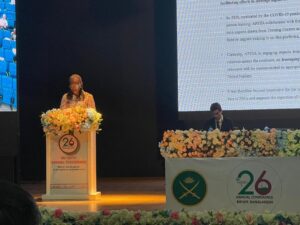
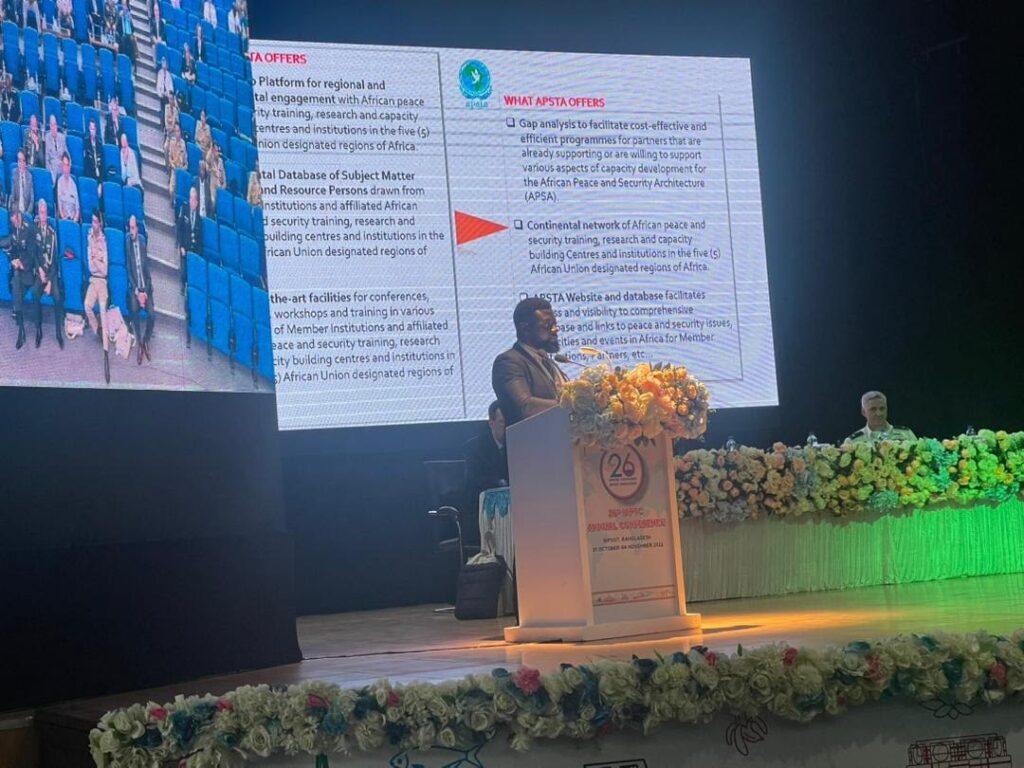
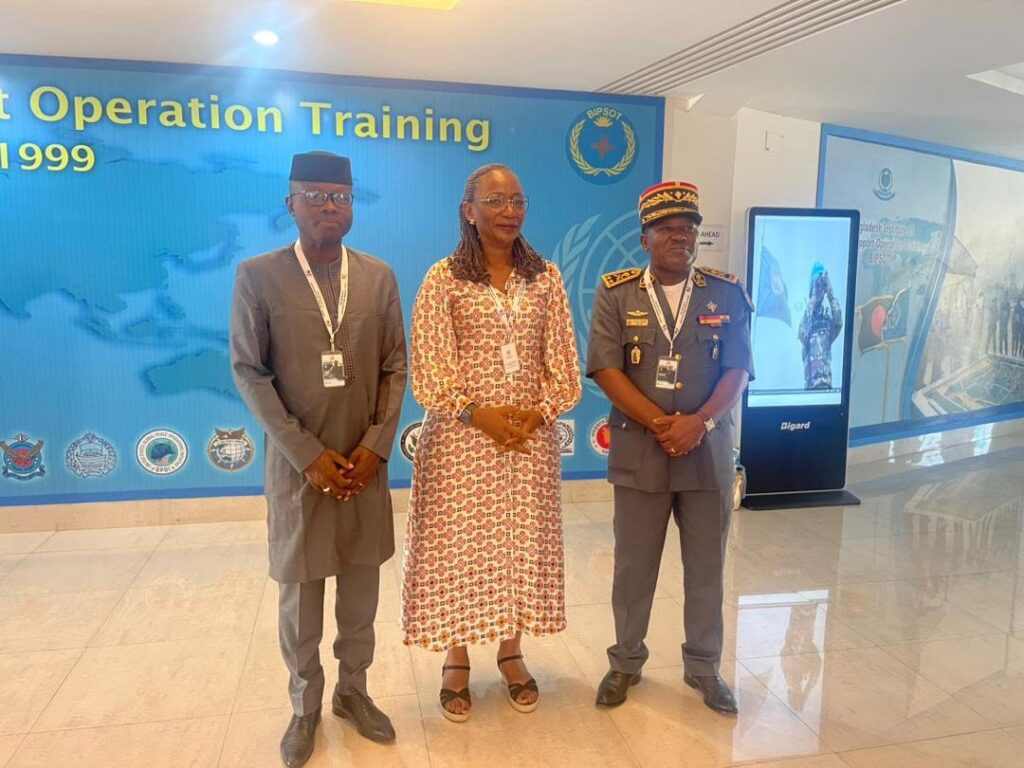
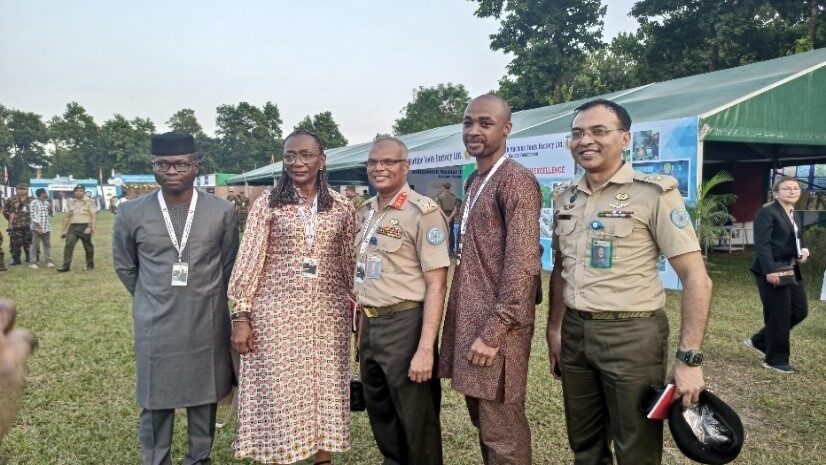
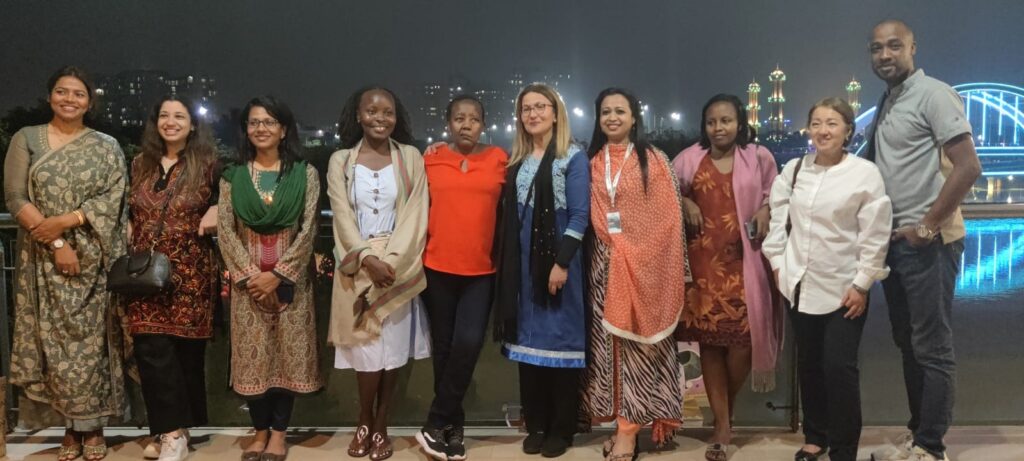






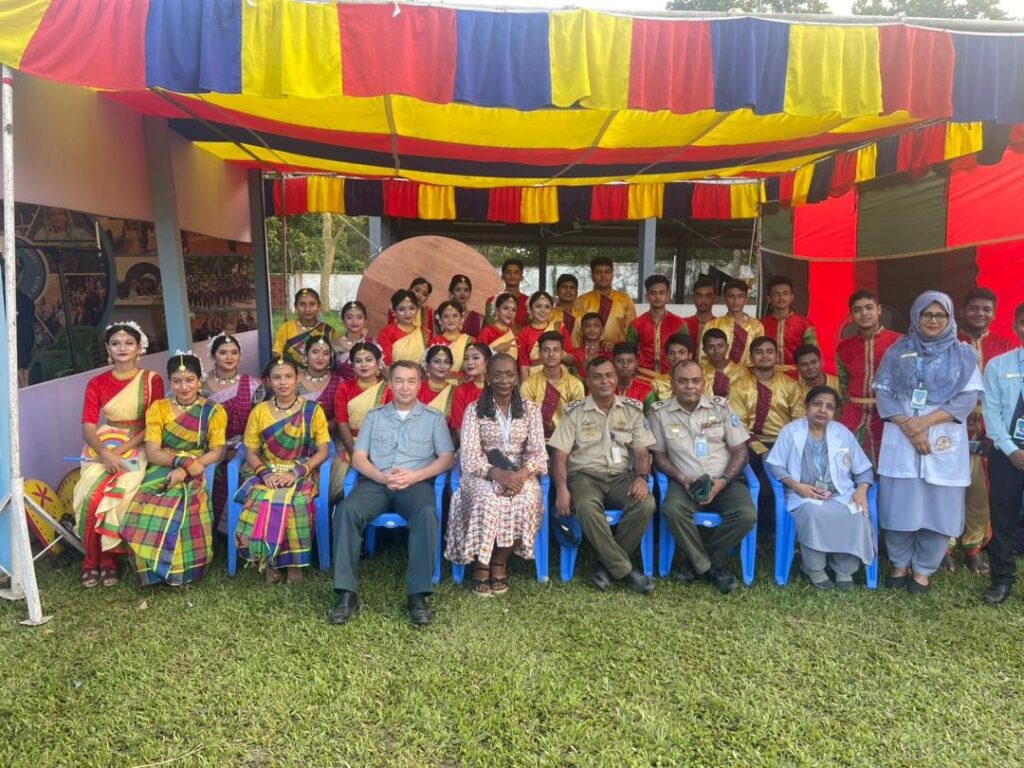
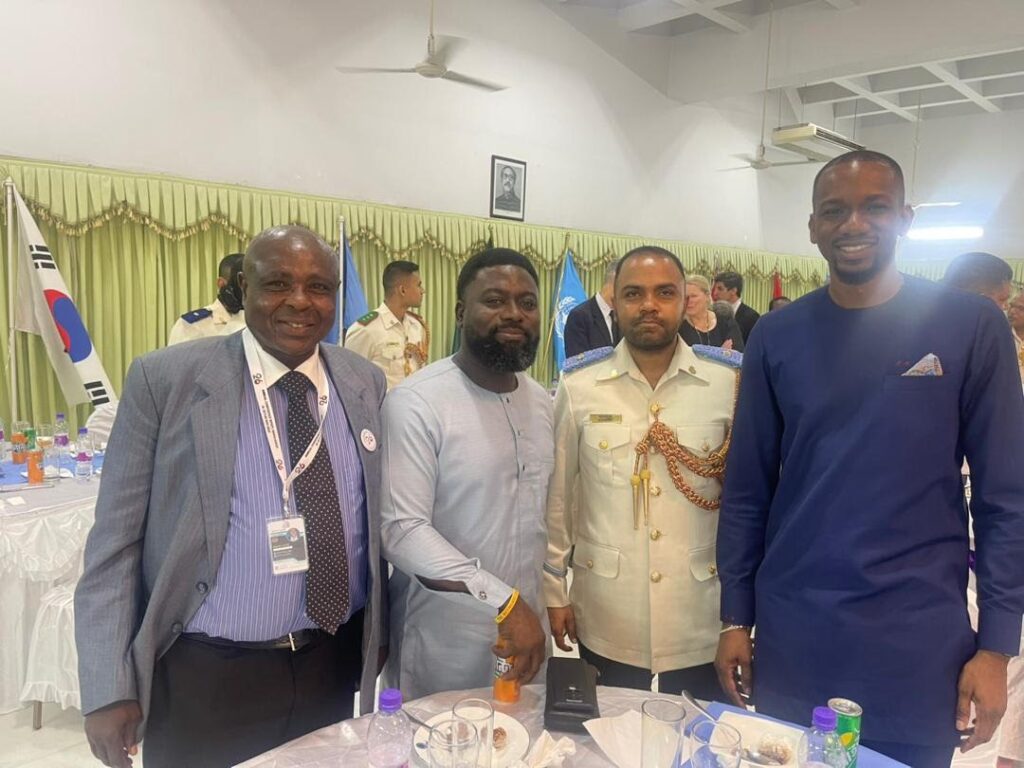

Conclusion
The Secretariat was represented by Dr. Cecile Oyono (Executive Secretary), Mr. Alexander Odartey Lamptey (ICT/KM Officer) and Mr. Ibrahim Mouko Hamadou Aoudi (PA/Desk Officer). It was a fruitful conference, and the team took advantage to project the visibility of APSTA, created more network and contacts towards its mandate. Furthermore, the recommendations and best practices identified would be communicated to all stakeholders of APSTA to strengthen its operations.